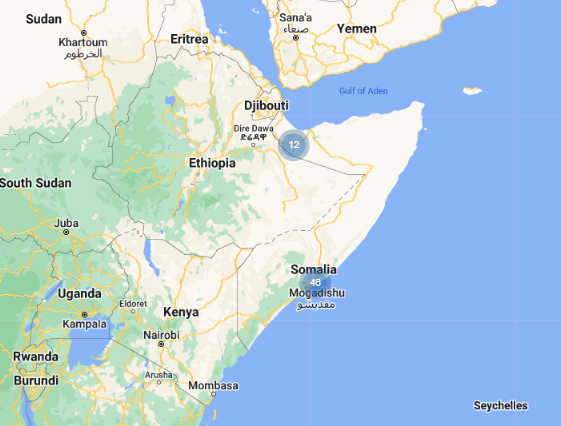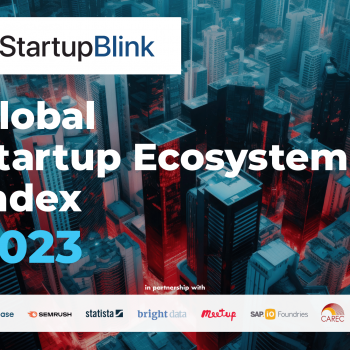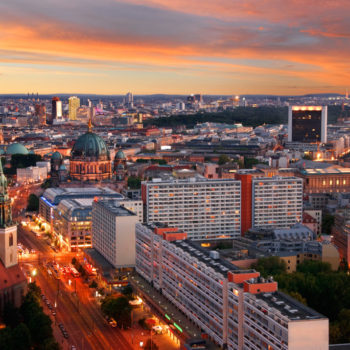The Global Startup Ecosystem Index offers a detailed overview of the top 100 countries and 1,000 cities leading the startup world. However, innovation also occurs in less well-known places. The Contender Ecosystems section of StartupBlink highlights dozens of emerging startup cities this year, particularly in countries with developing startup ecosystems. These cities may not yet be widely recognized as startup hubs, but they are fostering new startups and quickly moving up the ranks.
With StartupBlink’s Ecosystem Development Services, you can gain deep insights into your startup ecosystem, comprehensively understanding its strengths and weaknesses. By analyzing and benchmarking your ecosystem against other cities or regions, we provide you with crucial insights to attract investment and talent.
What is an Emerging Startup City?
Emerging startup cities are promising cities with a seed startup activity. These ecosystems have coworking spaces and a few accelerator programs, mainly supported by the public sector. Startups often begin here but may struggle to find the resources needed for rapid growth, leading them to move to more established areas.
In the StartupBlink Global Startup Ecosystem Index, emerging startup cities typically find themselves ranked between 501st and 1,000th. These ecosystems are usually from countries not in the top 100. While their global position may not be the most prominent, these cities hold the seeds of potential growth and innovation. It is within these ecosystems that the early stages of entrepreneurship and experimentation shines.
Emerging Startup Cities in 2024
Emerging Startup Cities on the Rise
Several countries, not yet major players in the global startup scene, have emerging startup ecosystems within individual cities. While these countries have not yet managed to be ranked in the global top 100, their up-and-coming startup scenes are beginning to carve out a space on the international stage.
Victoria, Seychelles, stands as a good example. Ranked 219th globally, it is the top ecosystem among the top 300 cities from an unranked nation. This impressive position highlights the potential hidden in these lesser-known locations. Victoria’s success story demonstrates how even small, under-the-radar cities can develop thriving startup communities, attracting both local and international interest.
Several other cities are making significant strides, breaking into the top 600 globally despite being from unranked countries. Leading this list are Kathmandu (Nepal), Luanda (Angola), Dar es Salaam (Tanzania), and Tashkent (Uzbekistan). These cities, alongside others like Algiers (Algeria), Yangon (Myanmar), and Caracas (Venezuela), are showing clear upward trajectories, attracting attention and investment. The rise of these cities indicates that innovation is not confined to traditional hubs but is spreading to new regions.
Countries with Diverse Seed Ecosystems
Somalia’s progress is particularly noteworthy, with both of its ranked cities Mogadishu and Hargeisa are now in the top 800 globally. This development highlights the significant potential of the Somali startup ecosystem and the increasing diversity within the global startup scene. Somalia’s progress is a testament to how a country’s startup ecosystem can thrive even under challenging conditions, given the right mix of talent, support, and determination.
Similarly, Cameroon and Iran each have three ranked cities, while Bolivia, Honduras, and Iraq each have two. This trend of multiple ranked cities from lesser-known countries suggests that these nations are cultivating unique specializations within their cities, contributing to a more resilient and varied startup ecosystem. The presence of multiple ranked cities in these countries indicates a broader, more distributed approach to innovation, which can lead to more sustainable growth and development.
How to develop an emerging startup city?
Developing a seed startup ecosystem requires a strategic approach and careful consideration of various factors. Firstly, providing financial support to startups in their initial stages can be crucial for their growth. However, it is important to exercise caution and thoroughly evaluate the potential of each startup before committing financial resources. As the ecosystem matures, it is advisable to avoid direct competition with startups, especially in later stages. For instance, public sector coworking spaces should be mindful of providing an environment that supports startups without overshadowing their growth potential.
Another effective strategy is to outsource certain ecosystem development activities to the private sector. Engaging external ecosystem developers can bring in fresh perspectives, expertise, and a wider network to enhance the startup ecosystem. It is also important to recognize and celebrate the achievements of startups as ecosystem heroes. By acknowledging their contributions and successes, startups are motivated and inspired to continue their entrepreneurial journey. Lastly, maintaining an open dialogue with startups is crucial for understanding their evolving needs, challenges, and aspirations. Regular communication and feedback mechanisms ensure that ecosystem support is aligned with the startups’ requirements, fostering a collaborative and thriving environment.
In conclusion, if there is one crucial aspect to prioritize when it comes to nurturing a seed startup ecosystem, it is to ensure that it is not harmed. This means being mindful of the decisions and actions taken that may have unintended negative consequences for the ecosystem and its participants.
If you are looking for support in developing your startup ecosystem, consider exploring StartupBlink’s ecosystem development services. With our expertise, we work closely with over 100 government organizations to help them uncover their strengths and weaknesses, allowing them to capitalize on their strengths and overcome their weaknesses.









